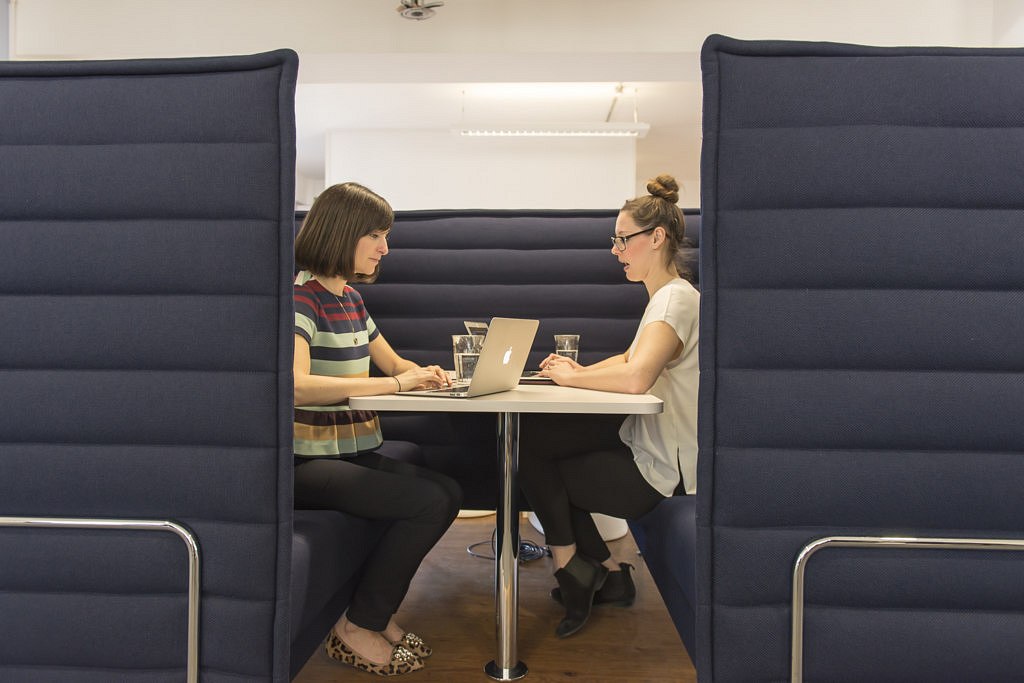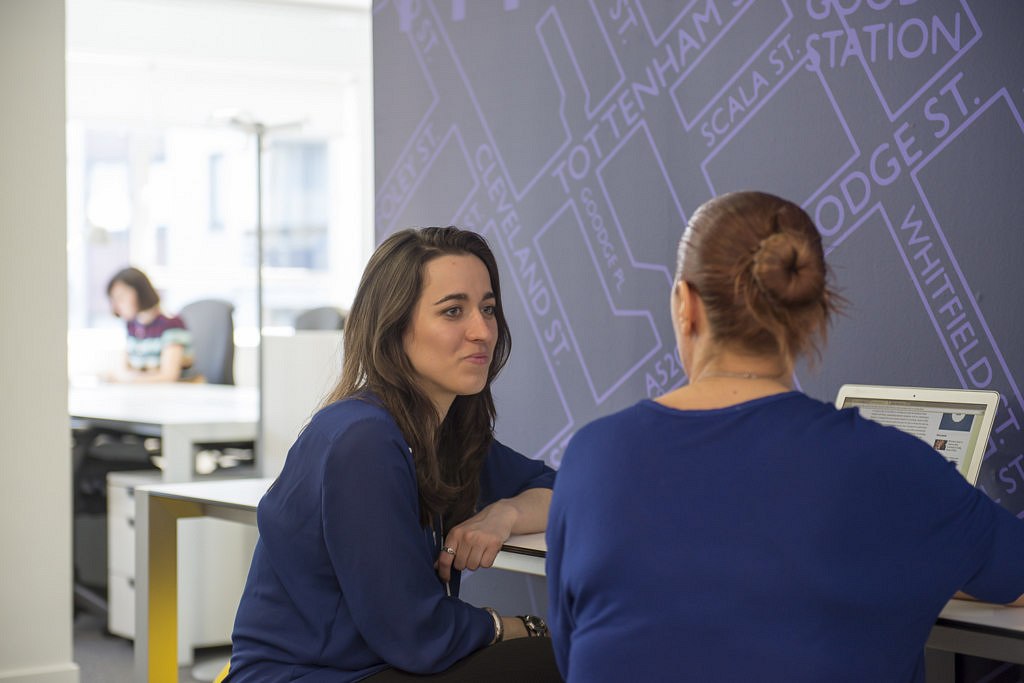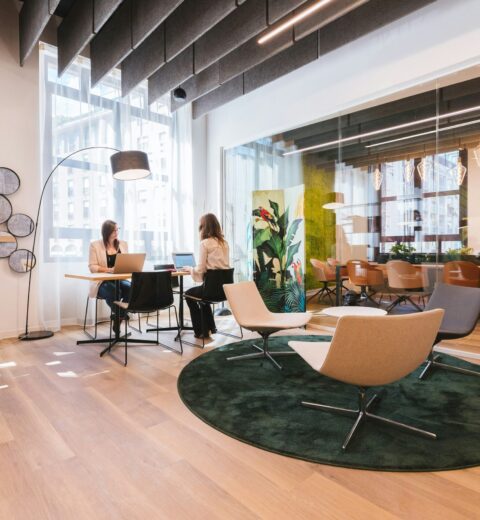3 Reasons Flexible Workspaces Are The Way Forward
I’m Caroline Pegden, the co-founder of TempaGoGo, an award-winning online one-stop-shop for temporary agency recruitment. This year, we were very excited to move our startup base from our kitchen into a flexible office environment. As we on-boarded our first employee, the time was right for us to enter into the world of offices. After all, nobody wants to hold investor or clients’ meetings in the front room!

The next question involved what sort of office space to choose. And, being a tech startup, co-working seemed a rite of passage. What’s not to love about synergy, close collaboration and unlimited reserves of complimentary coffee?
According to figures collected for the First Latin American Coworking Summit, about half of the world’s 35,000 flexible workspaces are described as co-working spaces, a number that is increasing by 15% year each year. And, as a result of its privileged status as a startup hub, London is rated #1 in the world as far as co-working growth rates are concerned, with a new co-working space opening up every week. As a startup, it can be hard to plan far ahead, not least for future capacity requirements, so co-working spaces or flexible offices are ideal to cater for startups looking to scale up.
So why did we end up plumping for a separate office rather than hot desks?
There are 3 main reasons why we decided to go ahead with a small office rather than a co-working space:
- Privacy
- Team Spirit
- Professionalism

- Privacy
All co-working spaces promote sharing and innovation. Entrepreneurs are unlikely to be well versed in all aspects of business, they argue, so open spaces should be created where ideas can spread and gaps can be plugged.
This all sounds lovely, but it conceals an uglier truth — sharing is not necessarily conducive to success in the doggy dog world of startups. With so many things that can possibly go wrong, from ineffective marketing to cashflow issues, you really don’t want the person behind you to pinch your crafty SEO strategy or sleek website design.

The old maxim of too many cooks spoiling the broth also comes to mind. If you asked 5 people what they would do to maximise their marketing budget, you would most likely end up with more questions than answers, knocking your confidence and derailing your own well-prepared plans.
When you rent your own small private office, though, or even a dedicated desk, you don’t feel pressured into venturing forth into the communal bathtub of the co-working space. And if you do strike gold and need to scale up, larger offices and even meeting rooms are available to accommodate your rise.
- Team Spirit
Just as ideas can flow out as well as flow in, having no physical boundaries makes it much harder to cultivate a sense of togetherness and camaraderie, and create a company culture.
Perhaps it is human nature to think all eyes are on you, but picking up the phone to customers or investors always seems more awkward surrounding by strangers.

Grinding it out as an entrepreneur is hard. But when even the smallest of milestones are achieved — 10 orders a month, one positive review on TrustPilot — you can still celebrate this moment of sheer joy with you and your team.
It doesn’t even have to be about terribly important moments — just bickering about the air-con or complaining about the quality of coffee can boost morale and, ultimately, productivity.
This doesn’t mean you have to remain hermetically sealed in your office! Most flexible spaces have a common area where you can chill out or engage with other entrepreneurs and business owners, should you so wish.
- Professionalism
Professionalism is an ill-defined category, but getting it right is crucial. Apparently, it takes an hour and a half to change a first impression, so you’re better off getting it right first time!
The good thing about flexible working spaces is their range of meeting places. Pods offer a more informal meeting place for potential leads, while more serious deals can be mooted in private offices. For an added cost, meeting rooms can be hired to meet investors and prospective clients, or to host your own video call.

And more indirectly, having to change office location when you scale up can be confusing to clients, entailing as it does a change of telephone number, front desk, and courier.
You might be tempted to think greater professionalism is synonymous with greater prices — but this is not the case. Especially as your team starts growing, adding extra hot desks starts to add up. Some co-working spaces can set you back over £300! Renting a small office becomes more economical than renting 5 hot desks in a co-working space.
Moving from home to office is always an enticing and exciting prospect. After months or probably years of planning, you have finally turned dream into reality and launched your product or service. Just be wary of what you’re paying for! Have you had any similar experiences with your business? If there are other workspace solutions you think I should have considered, Tempagogo would be delighted to hear from you at [email protected].



